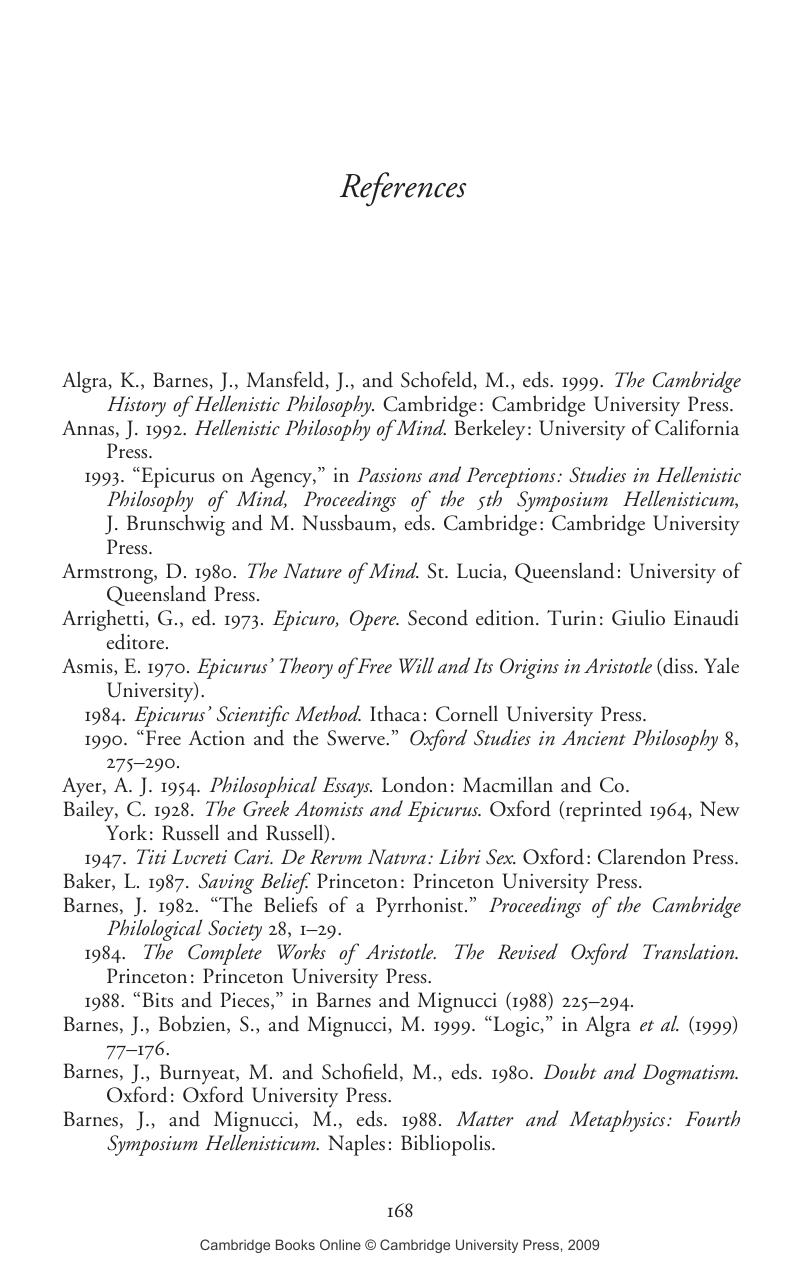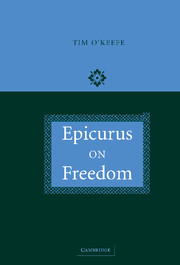Book contents
- Frontmatter
- Contents
- Acknowledgments
- List of abbreviations
- Introduction
- Chapter 1 What sort of an incompatibilist is Epicurus?
- Chapter 2 Lucretius on the swerve and voluntas
- Chapter 3 Aristotle and Epicurus on the origins of character and action
- Chapter 4 Epicurus' reductionist response to Democritean fatalism
- Chapter 5 The swerve and collisions
- Chapter 6 The swerve and fate
- Chapter 7 Epilogue: Epicurus and the invention of libertarian free will
- Appendix: Some texts
- References
- Index
- References
References
Published online by Cambridge University Press: 22 September 2009
- Frontmatter
- Contents
- Acknowledgments
- List of abbreviations
- Introduction
- Chapter 1 What sort of an incompatibilist is Epicurus?
- Chapter 2 Lucretius on the swerve and voluntas
- Chapter 3 Aristotle and Epicurus on the origins of character and action
- Chapter 4 Epicurus' reductionist response to Democritean fatalism
- Chapter 5 The swerve and collisions
- Chapter 6 The swerve and fate
- Chapter 7 Epilogue: Epicurus and the invention of libertarian free will
- Appendix: Some texts
- References
- Index
- References
Summary

- Type
- Chapter
- Information
- Epicurus on Freedom , pp. 168 - 173Publisher: Cambridge University PressPrint publication year: 2005



